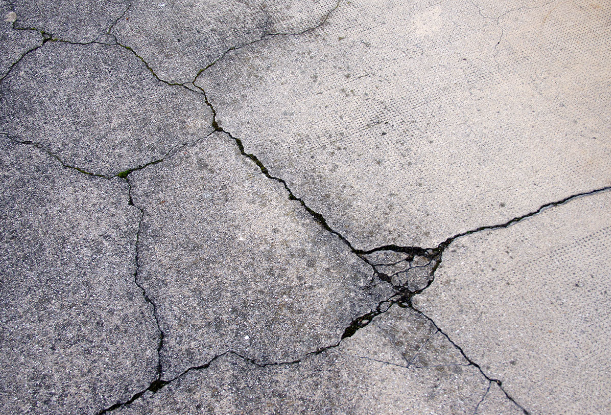3 Causes Of Cracked Concrete In San Diego
Contractors will all respond the same way if you ask them if they can guarantee that the patio they pour won’t crack: they can’t. This is due to the fact that concrete will always crack, regardless of what is done.
Engineers and scientists have dedicated their entire careers to preventing concrete from breaking. They still don’t understand what is happening. There is nothing that can be done to prevent concrete from cracking. Our business has completed countless projects and has poured concrete for a very long time. Because of this, we want to be sure that our clients are aware of the causes of concrete cracking and the solutions available.
-
Crumbling Shrinkage
Concrete can crack for a variety of reasons, but shrinkage cracking is by far the most typical. Your concrete driveway or patio should be poured while still wet since this will allow for proper shaping. The water inside the concrete evaporates as it begins to dry, causing the concrete to shrink. For every 100 square feet of surface area, a concrete slab will shrink by around 1/4 inch. A few hours after it has been poured, concrete may begin to crack due to drying and shrinkage.
-
Discrepant Fractures
On your patio or driveway, any crack that is 1/8 of an inch or smaller is thought to be normal. There might be a few microscopic cracks that disappear after a month or two.
-
Small Breaks
Because cracks are widespread, the majority of them won’t harm your patio or driveway. One of the sturdiest materials you may use to construct your driveway and patio is still concrete. Small cracks in your concrete project are purely cosmetic and won’t have any impact on how sturdy or long-lasting it is.
FAQs
What Are The Three Reasons For Concrete Cracks?
- Water was added to the mixture in excess.
- Concrete dries out quite fast.
- On-site concrete pouring employed the incorrect strength of concrete.
- There weren’t enough control joints in the concrete slab.
- In the winter, foundations are poured.
What Is The Most Regular Reason For Concrete Cracks?
Cracks are frequently caused by shrinkage. Concrete shrinks as it dries and becomes harder. This occurs as a result of part of the additional water that evaporated during mixing. The concrete mix will shrink more as it becomes wetter or soupier.
What Causes Concrete To Crack So Easily?
Plastics that settle and plastics that shrink are the two main factors that contribute to early breaking. Both types of cracking develop quickly after concrete is cast. It takes place in the first 30 to 6 hours after the concrete has been poured and compacted, before it has fully hardened or set.
Conclusion
You should consult San Diego Concrete initially if you are unsure of how to proceed with your concrete job. We are available to provide you with frank answers to your queries concerning concrete cracks or anything else related to concrete. Keep in mind that we’ve been doing this for a while and are knowledgeable with concrete.
Give our professionals at San Diego Concrete a call at (619) 383-2500 right away to know more about our excellent concrete services in San Diego, CA.
Our Services
Colored Concrete
Concrete Demolition
Decorative Concrete
Stamped Concrete
Residential Concrete
Parking Lots
Sidewalks
